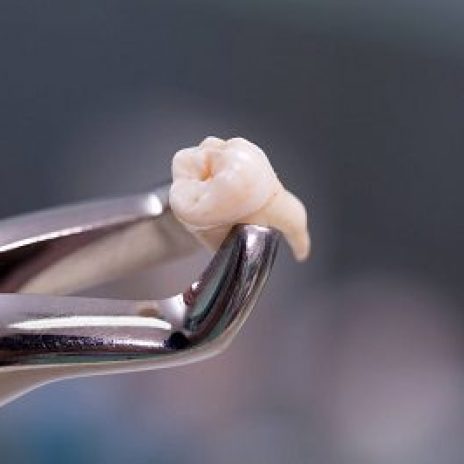Wisdom Teeth Removal
People may need their wisdom teeth removed for several reasons. They could be pushing up against other teeth or causing your mouth to pain. There may also be infected wisdom teeth that you are unaware of in your mouth. In any of these instances, it may be smarter to get your wisdom teeth removed.
Your first consultation at Dental Beauty will start with a detailed discussion of your dental history, so we can evaluate your situation and determine your general oral health. We will assess the condition of your wisdom teeth and take any necessary x-rays to establish the best course of action moving forward.
Once wisdom teeth removal is established, we book you in for an appointment convenient for you and make a few suggestions to help you get ready. For example, you may need to avoid eating or drinking anything for a few hours before surgery. You may also need to prepare for over-the-counter pain medication and cold packs.
Once you’re at the clinic, our dentist will typically give you a local anesthetic, which works to numb the area around the tooth so you remain comfortable during the wisdom teeth removal surgery — a common in-chair procedure we’ve done countless times.
Is Wisdom Tooth Extraction Painful?
You are usually awake during the procedure and may feel a little pressure while the tooth is being removed, but it is unlikely to cause you a lot of pain, thanks to a local anesthetic.
After the anesthetic wears off, you may experience some discomfort, which is why we will offer you some pain relief solutions to help you tide over the next few days. But this is short-lasting, and you will be back to normal quickly. You may be advised to use a cold pack to reduce the swelling inside your mouth.
To minimize your pain and any complications, it is crucial to work with a dentist experienced at tooth extraction to ensure nothing goes wrong during the procedure. Experience matters when it’s your related to your teeth, so don’t take it lightly!
Why Choose Dental Beauty for Your Tooth Extraction?
At Dental Beauty, our experienced professionals have the expertise and resources to ensure your experience is as pain-free and seamless as possible.
Our dental team stays up to date with the latest tools and technologies in the market, so we can offer the most sophisticated dentistry solutions to each of our clients. From tooth extraction and root canals to pinhole surgery and dental crowns, we can do just about everything in our office to ensure you a healthy, confident smile! Reach out to our team today to learn more.
Tooth extractions are routine dental procedures used to remove decayed, damaged or otherwise problematic teeth. Dentists usually make every effort to preserve natural teeth, although sometimes an extraction is necessary. Although the procedure is performed in a dentist’s or oral surgeon’s office, it is considered surgery. Depending on which teeth are removed, they may be replaced with a dental implant or another oral prosthetic.
There are several reasons why you could need a tooth extraction.
The most common cause of tooth extractions is severe tooth decay and cavities. However, many patients also undergo extractions for impacted teeth – particularly wisdom teeth. Other causes for extraction include advanced periodontal disease, cracked teeth, and teeth that are severely malformed. Although many circumstances that require extraction are unavoidable, some could be prevented with regular visits to the dentist for exams and cleanings.
Frequently Asked Questions
Do I need a tooth extraction?
Only your dentist can tell you if you need a tooth extraction. However, you may be a candidate for the procedure if one or more of your teeth are decayed so severely that a filling or others restoration is not a possibility for treatment.
What should I expect during my tooth extraction appointment?
If you and your dentist decide to extract one or more teeth, you will be scheduled to return for oral surgery at a later date. You will be given a local anesthetic to prevent pain during the procedure, and you may be prescribed medications to help manage pain in the hours following your extraction. Depending on the nature of your extraction and other factors, such as whether your teeth are impacted, you may also be sedated or given general anesthesia during your procedure.
What type of post-treatment care will I need to follow?
Post-operative care following a tooth extraction is essential for healing and preventing complications. You will be instructed to avoid certain foods and also keep the surgical site clean at all times. If you are prescribed an antibiotic, it is important that you complete the course of treatment to prevent infection. Finally, you may be advised to avoid smoking or drinking through a straw, as doing so may delay the healing process and cause a condition known as ‘dry socket.’


